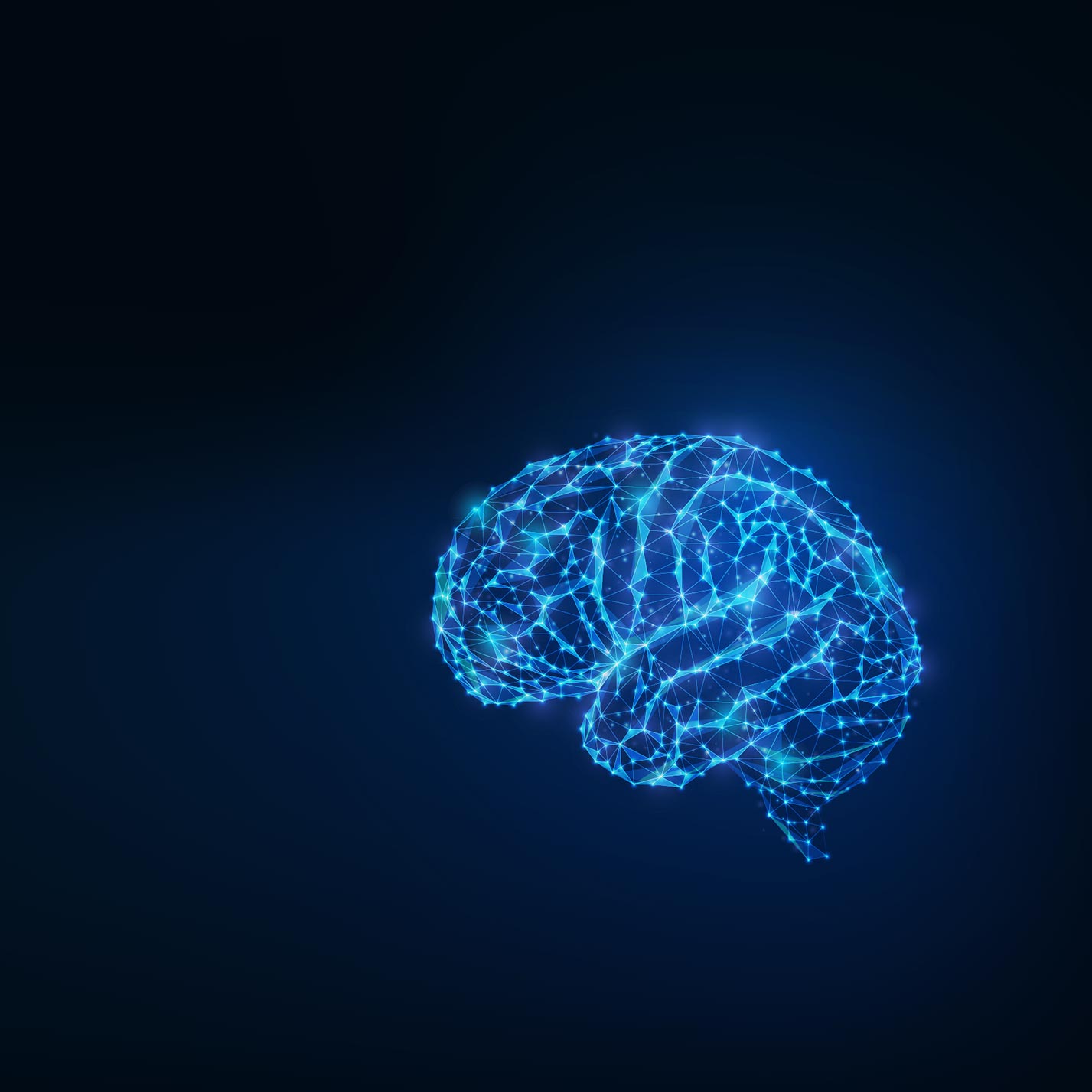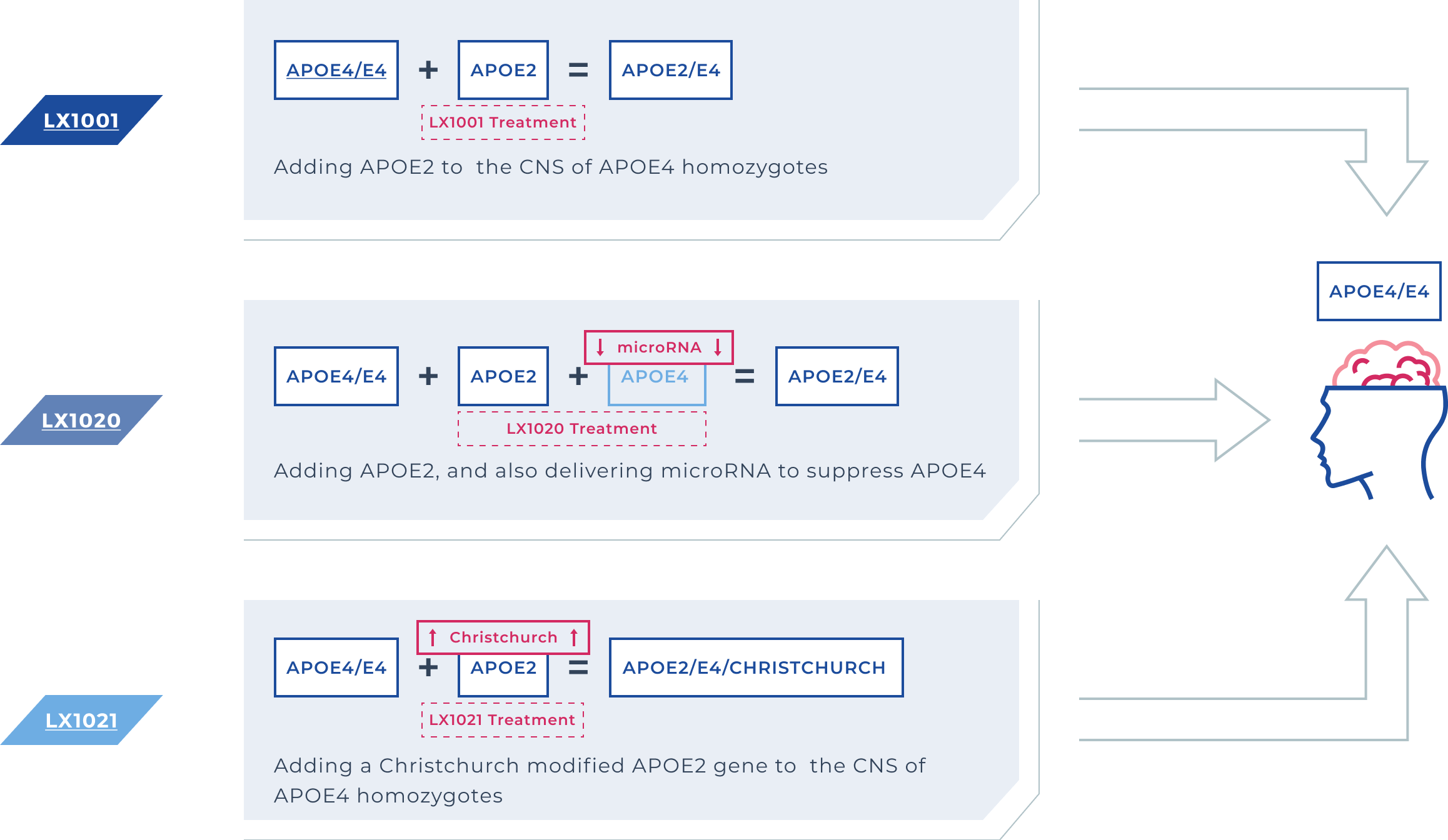CNS programs
Advancing Gene Therapy in Monogenic Diseases

LEXEO aims to apply the transformational science of gene therapy to address some of the most devastating central nervous system diseases affecting both rare and prevalent patient populations. We are developing a pipeline of CNS focused gene therapies that includes a portfolio of approaches to treat the genetics underlying Alzheimer’s disease.

LX1001 / LX1020 / LX1021
Alzheimer’s
Our current gene therapy programs under development for the treatment of Alzheimer’s disease are:
- LX1001: a gene therapy candidate that is designed to express the protective APOE2 protein in the CNS of APOE4 homozygous patients.
- LX1021: a gene therapy candidate that is designed to express the Christchurch-modified APOE2 protein in the CNS of APOE4 homozygous patients. The Christchurch mutation has been observed to protect patients against Alzheimer’s disease even in the presence of significant amyloid pathology.
- LX1020: a gene therapy candidate that is designed to express the protective APOE2 protein in the CNS of APOE4 homozygous patients, while concurrently delivering miRNA to suppress the expression of the APOE4 protein.